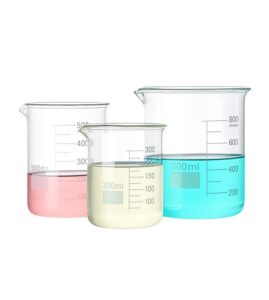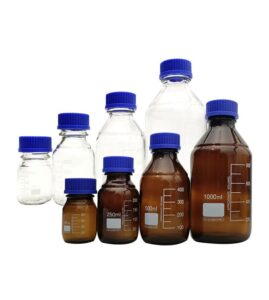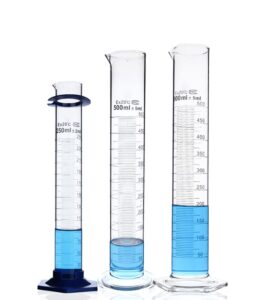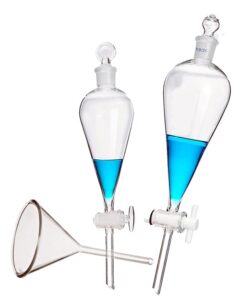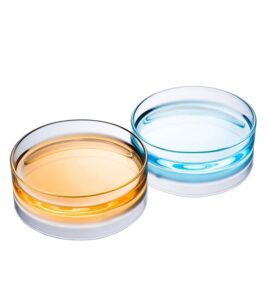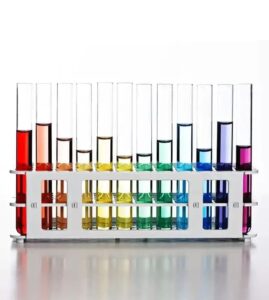In the intricate world of laboratory science, the manipulation of delicate glassware is a daily routine. However, are you cognizant of the potential hazards associated with the improper handling of such equipment? Do you understand the crucial importance of strict adherence to safety protocols during each phase of experimentation – preparation, execution, and cleanup?
Ensuring safety in the laboratory, particularly when interacting with glassware, necessitates a comprehensive, methodical approach. This involves stringent pre-experiment preparation, unwavering observance of safety protocols during the experiment, and meticulous post-experiment procedures.
Let’s take a detailed walkthrough of this holistic approach to maintaining glassware safety in a laboratory setting.
Meticulous Pre-Experiment Safety Procedures
Effective safety begins well before the experiment starts, and it involves careful planning and preparation. Here are the integral steps:
Detailed Inspection of Glassware
Every piece of glassware should be thoroughly checked for any signs of damage, such as chips or cracks. Damaged glassware can shatter unexpectedly during an experiment, posing a serious safety risk.
In-depth Understanding of the Experiment
A thorough understanding of the experimental procedure, including the safety protocols, is crucial to prevent errors that could lead to accidents.
Proper Utilization of Personal Protective Equipment (PPE)
Safety goggles, lab coats, and gloves are essential protective gear that must be worn at all times to safeguard against potential injuries or chemical exposure.
Stringent Safety Measures During the Experiment
As the experiment unfolds, adherence to safety protocols is vital.
Proper Handling of Glassware
Always handle glassware with clean, dry hands to prevent it from slipping. Utilize appropriate clamps or tongs when dealing with hot or chemically hazardous glassware.
Avoid Haste
Hastiness can lead to errors or accidents. Ensure you allocate ample time to carefully execute each step of the experiment.
Stay Alert
Continual awareness of your surroundings and ongoing experimental procedures is critical to prevent accidents. If anything unusual is observed, stop the experiment immediately and notify the lab supervisor.
Thorough Post-Experiment Safety Procedures
Even after the experiment concludes, certain safety measures must be observed:
Thorough Cleaning
To prevent cross-contamination, glassware must be cleaned immediately after use.
Proper Storage
Glassware should be stored in designated areas, ensuring heavier items are placed at the bottom and the storage area isn’t overcrowded.
Safe Disposal
Dispose of broken or no longer needed glassware in the designated glass disposal boxes.
In Case of Accidents
Despite meticulous planning and strict adherence to safety protocols, accidents can occur in the laboratory. In such cases, it’s critical to respond quickly, effectively, and calmly to minimize damage and injury. Here are the detailed steps to take in case of an accident involving glassware in the laboratory:
- Stay Calm and Assure Safety: Your first response should be to ensure your immediate safety and that of others. This might mean stepping back from the accident area or turning off any heat sources, if safe to do so.
- Alert Others and Supervisors: Immediately notify everyone in the laboratory about the accident to prevent further injuries. Also, promptly inform the laboratory supervisor or manager.
- Administer First Aid: If there are any injuries, attend to them as quickly as possible. This may involve washing chemical spills off the skin with plenty of water, applying a bandage to minor cuts, or using an eyewash station if eyes are affected.
- Seek Medical Attention: For more serious injuries, call emergency services or seek immediate medical attention. Provide as much information as you can about the incident, including any chemicals involved.
- Secure the Accident Area: To prevent further accidents, restrict access to the accident area until it can be cleaned up.
- Clean Up: Once it’s safe, broken glass should be cleaned up using a dustpan and brush, never bare hands. Contaminated glassware should be disposed of according to the laboratory’s waste disposal guidelines.
- Document the Incident: Record all details of the accident, including the date, time, people involved, equipment used, procedures followed, and any injuries sustained. This information is crucial for follow-up investigations and for implementing measures to prevent similar incidents in the future.
Remember, every laboratory should have a well-defined accident protocol that aligns with the above steps but is tailored to its specific needs. Regular training and drills on accident response can help everyone in the laboratory respond effectively when accidents occur.
Constructive Suggestions for Further Enhancing Glassware Safety
While the aforementioned guidelines form the bedrock of glassware safety in laboratories, there’s always room for continuous improvement. Here are some constructive suggestions that could further enhance the safety culture:
- Implement a Glassware Inspection Schedule: Regular, systematic inspections of all laboratory glassware can help identify and retire damaged pieces before they pose a safety risk.
- Enhance Safety Signage: Clear, prominently displayed signage can serve as a constant reminder of safety rules and procedures. This includes instructions for proper glassware handling, storage, and disposal.
- Involve Everyone in Safety: Safety is a shared responsibility. Regularly solicit feedback and suggestions from all laboratory personnel on how to improve safety practices.
- Promote the Use of Safety Equipment: Encourage the use of safety equipment such as rubber mats, which can prevent glassware from slipping or breaking if dropped, and safety shields for procedures involving high pressure or extreme temperatures.
- Regularly Update Safety Protocols: As new equipment and experimental techniques are introduced, safety protocols should be updated accordingly. Regular reviews of safety procedures ensure they remain relevant and effective.
In conclusion, glassware safety in a laboratory is a comprehensive process that encompasses meticulous pre-experiment preparation, stringent adherence to safety measures during the experiment, thorough post-experiment procedures, and an effective emergency response in the event of accidents. Strictly following these guidelines not only ensures personal safety but also contributes to a safe, efficient, and productive laboratory environment.


